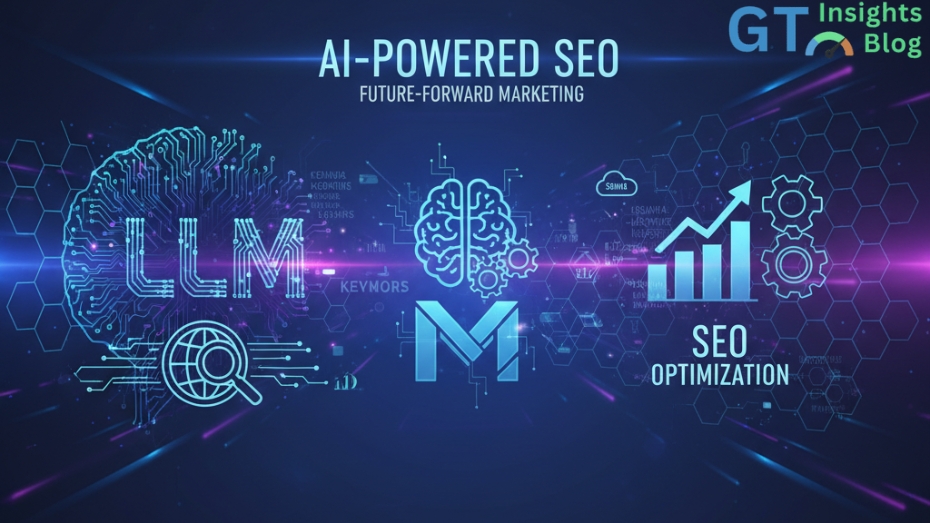
The digital landscape is being transformed by Large Language Models (LLMs), a frontier in artificial intelligence (AI) that understands, generates, and interacts with human language at an unprecedented scale. As LLMs power tools like ChatGPT and Google’s Gemini, their impact on SEO (Search Engine Optimization) is profound and far-reaching.
What Is LLM?
Definition
A Large Language Model (LLM) is an advanced type of AI designed to process, analyze, and generate natural human language. These models use deep neural networks, particularly transformer architectures, trained on massive datasets sourced from books, articles, and websites. They excel at understanding semantics, grammar, and context, giving them powerful capabilities in text generation and comprehension.
Core Applications
- Text Generation & Summarization
- Conversational AI (chatbots, assistants)
- Language Translation & Correction
- Code Generation & Debugging
- Content Analysis & Recommendation
How LLMs Are Reshaping SEO
Advanced Understanding of Language
LLMs have revolutionized how search engines interpret web content. Instead of just matching keywords, LLMs understand meaning, context, and user intent. Search algorithms can now accurately interpret conversational queries, long questions, and nuanced language, favoring content that answers queries naturally over keyword-heavy articles.
Rise of Zero Click Answers
Thanks to AI-powered summaries and direct answers (like Google’s SGE AI Overviews), users often get what they need without clicking through to a site. Studies show nearly half of searches now end with no website visit, shifting the aim from ranking for clicks to being referenced and cited by AI engines.
Also Read: SEO vs GEO
New SEO Metrics and Opportunities
Visibility today isn’t just about ranking on page one; it’s about being featured, referenced, or summarized in AI-driven responses. Brands can build authority and awareness even if users never visit their site. This opens new opportunities for content optimization focused on trust, expertise, and topical relevance.
Embeddings and Semantic Search
Unlike traditional algorithms that match keywords, LLM-powered search converts content into “embeddings”—mathematical representations that capture semantic meaning. Content is evaluated on depth, uniqueness, and clarity, rather than keyword density.
Reinforced Quality and E-E-A-T
LLMs are better at filtering out low-quality, repetitive, or untrustworthy content. Frameworks like E-E-A-T (Experience, Expertise, Authoritativeness, Trustworthiness) have become central for those seeking visibility in AI-driven search results.
Practical LLM Applications in SEO
Enhanced Keyword Research
LLMs excel in predicting user intent and identifying valuable, context-rich long-tail keywords for niche markets.
Smarter Content Creation
These models generate and optimize content that is not only informative but also engaging and relevant for both human readers and AI-driven algorithms.
SERP Analysis and Competitive Research
LLMs analyze and summarize competitor strategies, SERP features, and gaps, enabling smarter content planning and differentiation.
Technical SEO and Website Audits
AI tools powered by LLMs can audit websites, optimize meta tags, structure data markup, and provide recommendations for better crawling and indexing.
Personalized User Experience
LLMs deliver tailored content recommendations, making search and engagement more relevant and valuable to users.
Future SEO Strategy: Adapting to LLMs
Actionable Tips
- Focus on semantic and context-rich content, not just keyword repetition.
- Build trust signals—citations, expert sources, and authoritative author profiles.
- Structure information clearly for easy AI extraction (lists, FAQs, schema markup).
- Monitor and analyze zero-click metrics, impressions, and citations in AI-driven search.
The New Imperative
Brands must adapt, combining classic SEO with strategies optimized for LLM-powered search and answer engines. As companies shift budgets towards LLM optimization, being early and authentic can create lasting competitive advantages.
The Final Words
LLMs stand at the cutting edge of AI, changing not just how information is retrieved, but how visibility and authority are built online. For marketers and site owners, future-proof SEO means embracing semantic relevance, expertise, and user-centric content—because LLMs are reshaping the Google-era playbook one query at a time.